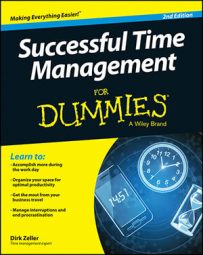Your per‐hour value translates to your quality of life, both now and in the future. Not only does your income influence how you spend your nonworking hours, but it also determines how much leisure time you have to spend.
As you can imagine, your hourly value reaches beyond the basics: It impacts your health, too. For instance, studies show that lower‐income earners have more health problems, including heart disease and diabetes, which are often attributed to poor diets and a lack of medical care.
Also, low‐income earners have less free time to invest in exercise because they have to invest more time to provide for the basic needs of their family. Additionally, the challenge of trying to make ends meet can cause great stress, leading to not just physical illness but also to depression and other mental health problems.
And though it’s important to live in the present, it’s also important to keep an eye toward the future. How well you prepare does have an impact on your quality of life right now. Making enough money to be able to save for retirement and other major life expenses — including a child’s education — results in a sense of comfort and safety about your future.
Your personal time has value, too. And by having a grip on the value of your work hours, you gain a better grasp on what your downtime is worth. After all, most people work so they can make the most of their personal time, whether they’re devoting it to family, hobbies, volunteer work, travel, or education.
Imagine someone who has doubled her income in the last few years. Her challenge is balancing her thriving business with her true priorities in life — her children and husband. Because she has raised her hourly rate in business, some of the home tasks, such as laundry, meal shopping and preparation, and house cleaning need to be reevaluated as to their value.
Certainly someone needs to do those functions for any family. But it didn’t have to be her. Because of these tasks, she was staying up late or getting up early to complete them. These normal activities caused her to work longer hours, miss opportunities in business, and feel detached from the family fun because she needed to get the laundry done or the house cleaned.
She hired someone to clean the house, do the laundry, and prep a few meals a week for about one to two sales per year. She just needed to trade her time from a lower‐value activity to a higher‐value activity.
When you recognize that your free time has a monetary value, just as your work time does, you gain the perspective you need to make choices:
Is the extra money you gain by working overtime worth giving up your holiday with your family?
Could you go part‐time and stay at home with your small children?
Can you afford to take a leave of absence to do a volunteer stint in Haiti?
Should you take on a freelance project that means giving up all your free time for three months to fund your dream trip to Bali?
But what is an hour of your personal time worth? Well, that’s not a question you can easily answer. How do you put a price on time with your young children? Or apply a dollar value to travel experiences that bring you in touch with new worlds? Or equate the quiet therapy of a walk in the woods with the stress of a work presentation?
The harsh truth is that you don’t get paid for not working. But that doesn’t mean your personal time has no monetary value. Just thinking about your time as a commodity with a value helps you sort through and recognize the activities that are most important to you.

